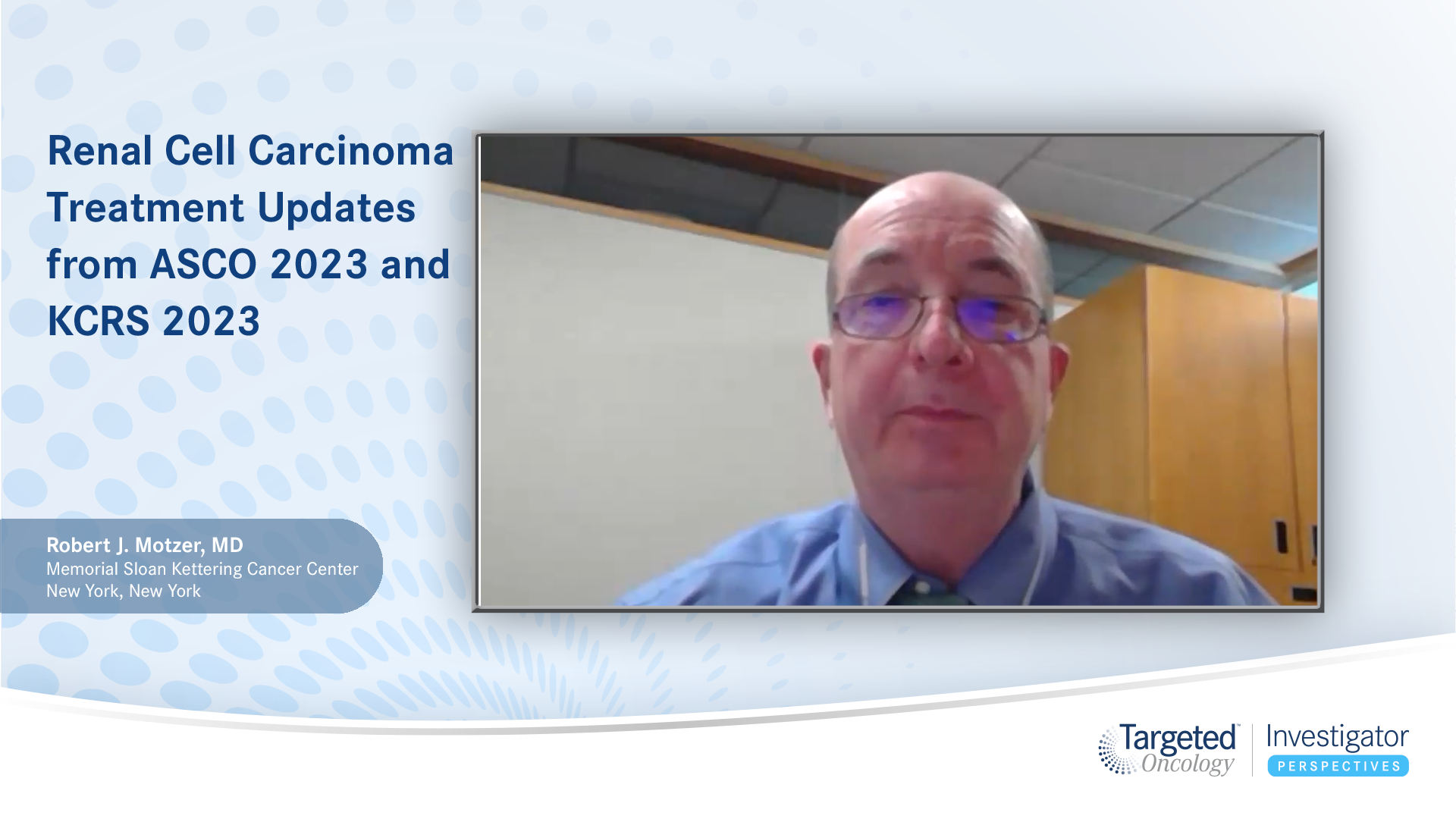Cancer and neoplasms
Future Outlook of Treatment for Clear Cell RCC
Transcript:
Robert J. Motzer, MD: We’ve made a lot of progress in the treatment of kidney cancer with the advent of tyrosine kinase inhibitors, PD-1 inhibitors, and now the combination therapies. The prognosis and the outcome have changed dramatically for the better for our patients, but we still need to make better gains for our patients. We need to make strides in efficacy and efforts to reduce drug-related toxicity. There is a need to develop novel agents to hopefully improve outcome. And the one group that is really on my radar screen is the HIF inhibitors. And the first in class is belzutifan, which in phase 2 trials has demonstrated pretty remarkable efficacy. It’s currently approved for patients with VHL [Von Hippel-Lindau] disease who have primary renal neoplasms, and it’s being studied in metastatic renal cell carcinoma [RCC] compared with everolimus.
There are other HIF inhibitors that are being developed by various sources. There are also novel strategies with CAR [chimeric antigen receptor] T-cell treatment, which I think is very of interest and should certainly be studied. We’re hoping that it has the same impact that CAR T has had for some of the hematologic malignancies, but I think it’s too early to say. And then I think it’s really important to better understand the underlying biology of RCC, why tumors become resistant to immunotherapy. Are there ways that we can overcome that resistance to immunotherapy? There are also some novel immunotherapeutic strategies that look at trying to overcome immunotherapy resistance. I’m very hopeful that with the efforts that are ongoing, we’ll be able to make the situation even better for our patients with RCC, with more progress over time.
Transcript is AI-generated and edited for clarity and readability.

